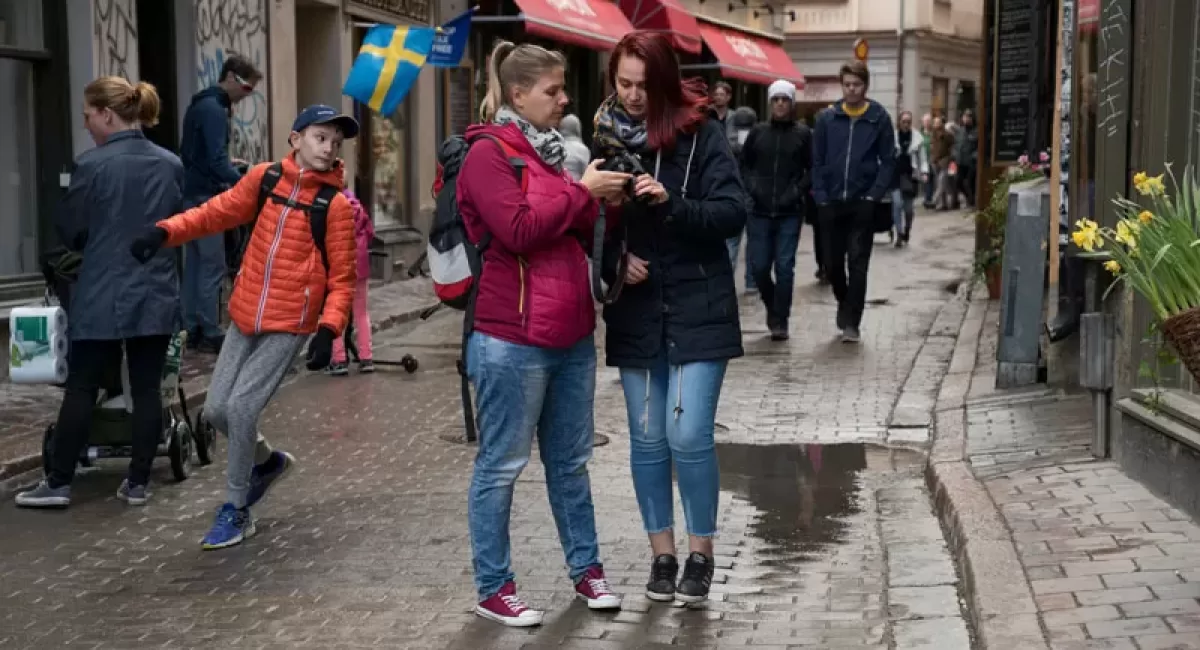How Gen Z Is Changing the Travel Industry
Gen Z’s growing share in the travel market continues to impact the way it operates, in many ways for the better. Do our Globe Aware volunteers who are also a part of Gen Z, agree with this?
How Gen Z Is Changing the Travel Industry — and Where They Plan to Go in 2024
Gen Z’s growing share in the travel market continues to impact the way it operates, in many ways for the better.
By Acacia Gabriel
March 16, 2024
Travel + Leisure
Maybe it is shared distrust in corporate America, but Gen Z is not waiting to see the world. They’re taking it by storm right now, and they are traveling in a way that is far different from other generations.
In fact, more than half of Gen Z adults are already considered frequent travelers. “Millennials paved the way and created this sort of idea that travel is a right, not a privilege,” says travel analyst Lindsey Roeschke, adding that Gen Z has built upon this mindset, continuing to prioritize travel above more traditional paths. While other generations are more likely to wait until they have a certain level of income before spending on trips, 61% of Gen Z travelers earn less than $50,000 annually, according to a study by Bankrate.
Gen Z is famously skeptical, and many are hesitant to trust the long-term promises that come with traditional careers. “Jobs and job security are not promised to any of us,” says travel influencer Raimee Iacofono. With travel more accessible than ever before, many Gen-Zers prefer to start their journeys as soon as they can.
Gen Z travelers have different priorities than older generations.
While cost has traditionally steered decisions for first-time travelers, many of today’s young explorers are booking based on their values. Gen Z is more likely to research how companies treat employees as well as their approach to sustainability, and these considerations impact their purchasing decisions.
“You can’t earn brownie points with Gen Z,” says Roeschke. When it comes to the companies they support, Gen Z travelers view ethical practices as the bare minimum.
On Southeast Asia travel, travel influencer Kayli King says: “People are becoming more conscious and you would have conversations about the exploitation of animals.” Travelers speak more openly about how they can support more ethical businesses, and Gen Z travelers are also more likely to point out which businesses still need to earn their approval.
Beyond this, this generation is more likely to prioritize adventure, mental health benefits, and cultural experiences. This attitude makes them more likely to visit places they have never been before and travel for longer periods of time. Part of this is age-specific rather than generation-specific, but it solidifies travel as an outlet for these young adults to connect with nature, different cultures, and themselves.
Where is Gen Z traveling next?
According to travel app Hopper, Gen Z and Millennial travelers checked prices to destinations in Asia 50% more often in 2023 than they did pre-COVID. Kiwi Report and tour company Contiki also listed Thailand as one of the most popular destinations for Gen Z travelers in 2023. Thailand is a typical starting point for travelers embarking on a Southeast Asia tour, and it has been blowing up on social media alongside Vietnam, the Philippines, and other Southeast Asian destinations.
Southeast Asia ticks all the typical Gen Z boxes. First of all, it is far less expensive than other popular destinations. As Kayli says, “The caliber of nature and landscape and the different things you can see for the price is honestly unbeatable.”
There are also several notable, “Instagrammable” rites of passage, including the Ha Giang Loop, Koh Phangan’s full moon party, and the Komodo Tour.
While Southeast Asia’s value and beauty have famously made it popular for young travelers and backpackers, it is also the culture shock that appeals to Gen Z. “Southeast Asia is a place that alters your brain chemistry,” Raimee says.
Gen Z’s growing share in the travel market continues to impact the way it operates, in many ways for the better. It forces us to recognize our privilege as travelers, reevaluate the institutions we support, and enjoy travel for travel’s sake.


Comments